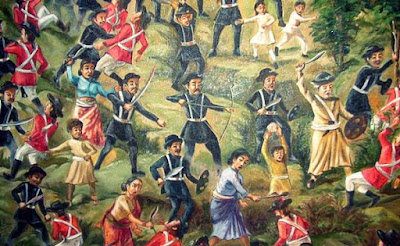Anglo Nepal war
The war took place between Nepal and the British East India company in 1814 AD is known as Anglo-Nepal war. The British colonized India and wanted to colonize Nepal too through a business company called East India Company. Nepal didn't accept British policy and the war broke out. It continued for two years.
Major Causes
Economic Cause
- British wanted to extend their trade with Tibet through Nepal
- The British didn't like the act of strengthening Nepali troops.
- They were attracted to Nepal's richness in natural resources and minerals.
Natural Cause
British were from the cooler and mild climate. It was difficult for them to stay in India due to it's hot climate. They found Nepal suitable for them to reside because of it's cooler climate. But Nepal government prohibited the entry of foreigners.
Political Cause
- Most of the defeated kings of Baise and Chaubise states went to take asylum in India. They wanted to regain their lost territory. therefore, they used to provide secret information to British-India and encouraged to attack Nepal.
- Bhimsen Thapa was the Prime Minister of Nepal during Anglo-Nepal war. he was against the British imperialism. he wanted to chase the British away not only from India but from whole Ais. He negotiated with the Indian states like Punjab, Maratha, Gwaliyar, Burma etc. to form a united organization of Asia against the British imperialism. Bhimsen Thapa was strengthening the power of Nepali troops by increasing weapons and providing trainings to soldiers. The British were alert of such activities and plan of Bhimsen Thapa and wanted to colonize Nepal too.
Growing strength of Nepal
Nepal's boundary was extended from Tista in the East to Kangada in the west after unification. Such growing strength of Nepal threatened the British.
Immediate Cause
The border dispute of Butwal and Syuraj was the immediate cause of Anglo-Nepal war. Butwal and Syuraj were ruled by the king of Palpa under the condition of paying land revenue annually to Nawab. When palpa was annexed to Nepal, those territories too came under the rule Nepal and stopped paying revenue. But the British claiming those parts as their territory. meanwhile, the British Governor-General Marquis of Hastings sent a threatening letter to Nepal to evacuate those places immediately. The then Prime Minister Bhimsen Thapa didn't respond to the letter. As a result, Hastings declared a war against Nepal on 1st November 1814 Ad (16 Kartik 1871 BS).
Nepali warriors fought the war with the British force bravely. it continued for two years. Eventually it couldn't go in favour of Nepal.
Consequences of Anglo-Nepal war
- Nepal was forced to sign unfair and one-sided Sugauli Treaty in humiliating condition on 4th March, 1816 AD (20th Falgun, 1872 BS).
- Heavy loss of lives and properties.
- Disappointment increased among all the Nepal.
- Nepal lost one-third of it's territory (places east of Mechi River and west of Mahakali).
- British got right to establish its embassy in Kathmandu, as a result, British interference in the internal affairs of Nepal started.
- Unification campaign of Nepal came to and end and conspiracy within the royal palace and politics of Nepal started.
- The recruitment of Nepalese people to British Army started.
- The provision made that Nepal couldn't involve in any European or American in the service without the permission of British.




